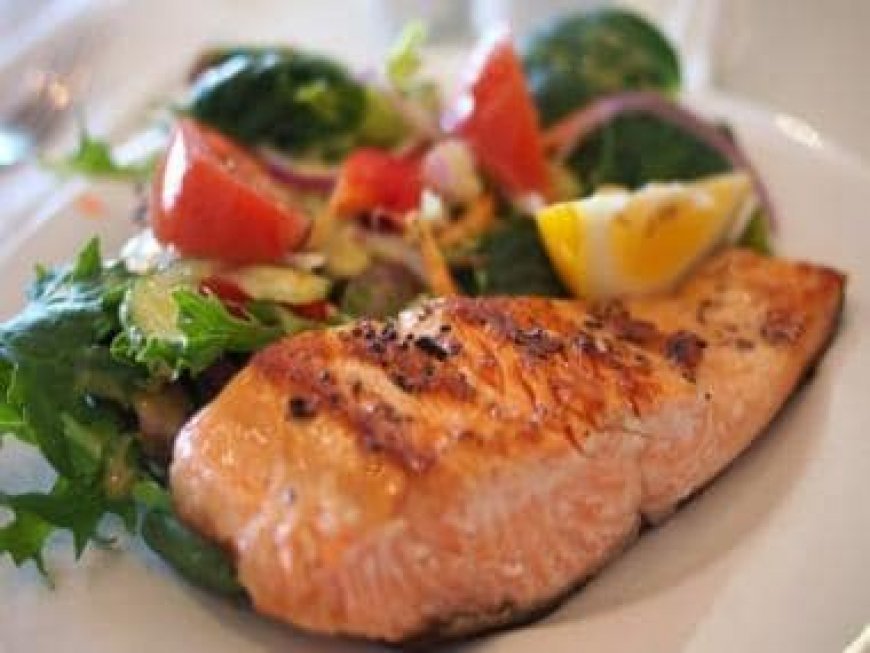What’s the Atlantic diet, the cousin of the famous Mediterranean diet? How healthy is it?
What’s the Atlantic diet, the cousin of the famous Mediterranean diet? How healthy is it?

Are you conscious about what you eat? Are you also mindful of the environment? The Atlantic diet is for you. Not only it is good for your health but also for the planet.
The Atlantic diet, which is all the rage these days, is the cousin of the famous Mediterranean diet. It’s the traditional diet that emerges from the eating habits of those in the coastal regions near the Atlantic Ocean. It is what those living in northern Portugal and northwestern Spain have been eating for ages.
The Southern European Traditional Atlantic diet, or Atlantic diet comes with loads of health benefits – it is good for the heart and lowers the risk of dying early from cancer.
A recent study published in JAMA Network, a medical journal, says that the Atlantic diet may be a beneficial new option for people looking to simplify and improve their nutrition.
What is the Atlantic diet?
The Atlantic diet shares its roots with the award-winning Mediterranean diet. Those living in coastal regions near the Atlantic Ocean incorporate an abundance of seafood, fresh vegetables and whole grains in their meals.
Fresh fish, particularly cod, features prominently in the diet. The other choices include salmon, mackerel and sardines. It also focuses on whole, unprocessed and fresh foods including vegetables, fruits, nuts, whole-grain bread, dairy, eggs, olive oil and other seasonal sources of nutrition. There is moderate consumption of red meat and pork and some wine.
Carbs and starches are a big part of the Atlantic diet, which calls for the consumption of foods like bread, pasta, cereal and rice six to eight times per day, according to a report by USA TODAY.
Red meat is used sparingly and eggs, dairy and poultry are eaten in lesser quantities than in the traditional Western diet. The mainstay of the meal is healthy, oily fish which is rich in omega-3 fatty acids, vitamins and minerals. The diet incorporates grains and legumes – brown rice, quinoa, lentils and chickpeas – and a lot of fresh produce like tomatoes, peppers, citrus fruit and leafy greens. Vegetable soup is a common staple on the Atlantic diet.

While some of the menu may be unique to that part of Portugal and Spain, a similar diet can be found in some parts of Czechia, Poland and the United Kingdom, experts are quoted as saying in a CNN report.
But is not just what you eat but also how you eat that matters. The Atlantic diet like the Mediterranean one is all about home-cooked meals and communal eating that brings people together and social interactions with family and friends.
“The Atlantic diet promotes health through nutrient-rich foods and communal eating habits, utilising traditional cooking methods like stewing to enhance nutrient absorption,” Michelle Routhenstein, preventive cardiology dietitian at EntirelyNourished.com, told Today.com.
Also read: What’s the Mediterranean diet?
What are the benefits of the Atlantic diet?
Populations from northwest Spain and northern Portugal have some of the lowest incidences of heart disease. Hence, the attention on the Atlantic diet.
The recent study published in JAMA Network found that those who followed this diet for six months had a lower risk of developing metabolic syndrome, a group of conditions that increase the risk of heart disease, diabetes and stroke. It is said to reduce belly and improve HDL “good” cholesterol levels
The study was conducted on 200 families who followed this food plan. The participants reported better cholesterol levels, blood pressure, fasting glucose levels and weight loss.

According to the study, the Atlantic diet helps in weight loss in a sustainable manner and promotes heart health.
Because it’s plant-based and locally sourced, the Atlantic diet also helps protect the planet by contributing to the United Nations’ Sustainable Development Goals, the authors of the research noted.
“This is a nice demonstration that such a diet, with an emphasis on local sourcing to the extent practical, offers benefits to people and the planet alike. That’s a good take-away,” Dr David Katz, a specialist in preventive and lifestyle medicine, was quoted as saying by CNN. He was also not involved in the study.

Earlier research has also shown that higher adherence to the diet was linked to lower risk of death. It also lowered the risk of death from cardiovascular disease and cancer for the nearly 36,000 study participants who were between the ages of 18 and 96 years old, reports CNN.
Other studies have also shown eating mostly an Atlantic diet can lower insulin, insulin resistance, systolic blood pressure, total cholesterol, body mass index (BMI) and waist circumference, the report says.
How does the Atlantic diet compare to the Mediterranean diet?
In comparison to the Atlantic diet, the far more famous Mediterranean diet is more plant-forward. It mainly comprises fruits, vegetables, beans, seeds and whole grains and a smaller amount of carbs, meat and animal products. Red meats are avoided in this plan. There is a big emphasis on extra-virgin olive oil.

According to Routhenstein, both diets offer “scientific evidence supporting their benefits for heart health, with the Atlantic diet providing omega-3 fatty acids from seafood and the Mediterranean diet offering antioxidants and healthy fats from olive oil and plant-based foods”. However, the Mediterranean diet has a more extensive research base especially linked to reduced cardiovascular risk, she concludes.
With inputs from agencies
What's Your Reaction?



























































